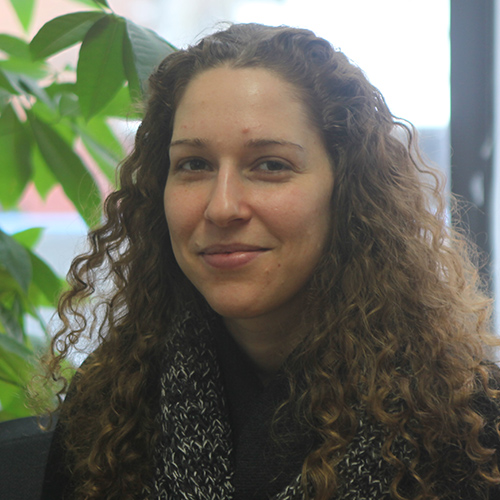Interviewing Visiting Rabin Medical Exchange Fellow, Dr. Dana Yelin

Our latest Rabin Medical Visiting Exchange Fellow at Memorial Sloan Kettering Cancer Center in New York City for six months, Dr. Dana Yelin, took a moment to chat with us. Dr. Dana Yelin would like to thank the American Friends of Rabin Medical Center and Phyllis & Malcolm Trobman and family for their full support to make this visiting Rabin Fellowship a reality.
Here is what our Rabin Fellow, Dr. Yelin had to say:
- Please provide an overview of your fellowship at your hospital and the role you played during your stay.
- Describe how your fellowship opportunity has expanded your knowledge in your specific field.
- What did you enjoy most about your fellowship opportunity?
- Do you feel international medical relationships and fellowship programs are vital to the future of medicine and research?
- What do you feel are the key issues and challenges in your field – not only in the Unites States and Israel, but worldwide?
- What are your future plans at Rabin Medical Center when you return to Israel?
- Would you recommend this fellowship to your peers? Why or why not?
I spent six months at Memorial Sloan Kettering Cancer Center (MSKCC) in the lab of Dr. Ross Levine. I joined as a full member of the lab, studying a model for adult leukemia in mice for the purpose of finding new targeted therapies for leukemia. During this period I was also fortunate to join the leukemia clinics at MSKCC and hematology consults rounds at NewYork-Presbyterian Hospital/Weill Cornell Medical Center.
MSKCC is a wonderful and innovative center for research and treatment of all kinds of cancer, and even more so for the hematological malignancies, such as leukemia. I was exposed to many new research methods and to the scientific method behind the novel therapeutic drugs we see at the clinic every day.
I enjoyed participating in groundbreaking research alongside some of the most renowned scientists in the field of leukemia and hematology in general. The lab staff was very warm and welcoming, and allowed me to join the research as a full member of the team.
Absolutely. Being exposed to new ways of doing things, whether research or clinical treatment of patients, is enlightening and a learning experience that should be encouraged in every field of medicine. The exchange of ideas is very important in the advancement of medicine and research.
In recent years the field is changing from general therapeutics to individualized treatment by analyzing each patient’s disease as a unique process that needs its own unique treatment. The evolution of each patient’s cancer is different and understanding that might lead us to better treatment options and better survival and cure rates.
When I return to Rabin Medical Center, I will first have to complete my internal medicine residency. Following that I will go on to a fellowship, most probably in hematology.
As I said earlier – absolutely! This is a unique opportunity to learn from and work with the best in the field. I believe the understanding of the scientific research behind the advances in medicine that we often “take for granted,” is very important to think of new ideas for further advances needed.
Related Articles
An Unforgettable Learning Experience: Dr. Orvin Katia
I spent one month (April 2015) at the Columbia University Medical Center – in the Cardiology Critical Care Unit (CCU). I worked under the supervision of Dr. LeRoy Rabbani. I joined the CCU team as an observer, but I participated in all of their activities during the day.
An Unforgettable Learning Experience: Dr. Merav Ben David
I spent 3 weeks at both the Peripheral Neuropathy Clinical and Research Center at Weill
Cornell Medical College with Prof. Latov and the Weill Cornell Medical Center.
During that time, I observed a motor nerve biopsy procedure which was performed by experienced surgeons at the nearby Hospital for Special Surgery.
3 Questions with Fellow Dr. Doris Parnes
Doris Parnes works at the Molecular Hematology Laboratory, at Israel’s Rabin Medical Center, engaging in the diagnosis of hematological disorders and patients follow up.